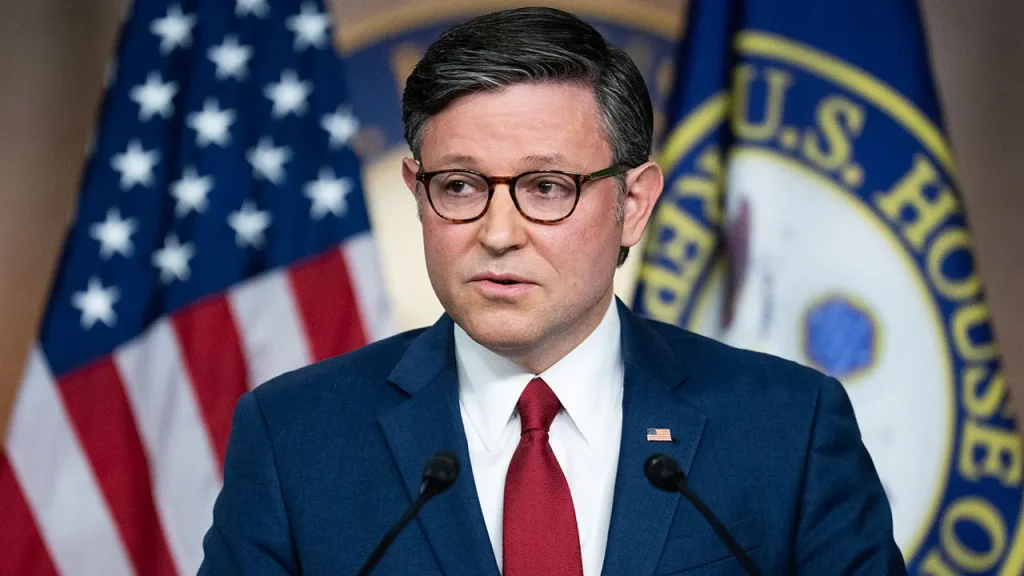House Moves to End Historic Government Shutdown After Six-Week Impasse
As weary lawmakers return to Capitol Hill following a six-week absence, the House of Representatives appears poised to finally end what has become the longest government shutdown in American history. The 42-day impasse has thrown countless lives into disarray – causing thousands of air travel delays, leaving millions dependent on federal benefits in uncertainty, and forcing federal workers to either go without work or labor without compensation. The end may finally be in sight, with the House Rules Committee scheduled to meet after 5 p.m. Tuesday to consider the Senate’s amended federal funding plan. This committee serves as the final procedural gateway before legislation reaches House-wide votes, where they set terms for debate and possible amendments.
The funding measure is expected to advance through the committee along party lines, with Republicans showing unified support while Democrats will likely oppose it in alignment with their leadership. Even traditionally oppositional conservative Republicans on the committee, like Representatives Chip Roy of Texas and Ralph Norman of South Carolina – who have often rejected GOP leadership’s proposals for not being conservative enough – have indicated their support for the bill. Roy confirmed he would vote “yes” on the House floor, while Norman’s support hinges on verifying “the fine print” of the spending limits matches what’s been reported. Both congressmen are currently pursuing higher offices in their home states, with Roy running for Texas Attorney General and Norman for South Carolina Governor.
The bipartisan compromise that passed the Senate Monday night includes several key provisions designed to end the shutdown while setting up further negotiations. The deal extends fiscal year 2025 federal funding levels through January 30, giving congressional negotiators additional time to develop a longer-term agreement for fiscal year 2026. It also makes progress on annual appropriations by advancing legislation to fund three critical areas: the Department of Agriculture and Food and Drug Administration; the Department of Veterans Affairs and military construction; and the legislative branch itself. These represent three of the twelve individual appropriations bills that typically compose Congress’s annual funding package, bundled together in what’s known as a “minibus.”
Democrats secured a notable victory in the compromise through provisions reversing federal layoffs conducted by the Trump administration in October, ensuring those workers receive back pay for their time off. Additionally, Senate Democrats gained a guaranteed vote on extending enhanced Obamacare subsidies that were implemented during the COVID-19 pandemic and are set to expire at year’s end. However, no similar guarantee was secured for the House, effectively forcing Democrats to abandon one of their key demands to end the shutdown – a concession that has angered progressives and left-wing congressional leaders. This political compromise reflects the urgent practical need to restore government operations despite ideological differences.
The full House is expected to take up the measure after 4 p.m. on Wednesday, according to notices sent to lawmakers. The process will begin with a procedural “rule vote” to authorize floor debate, followed by the actual vote on the measure itself later that evening. Both Tuesday and Wednesday schedules have intentionally been kept flexible to accommodate lawmakers returning to Washington amid nationwide flight delays and cancellations – ironically, problems exacerbated by the very shutdown they’re returning to resolve. This practical consideration highlights how deeply the government’s closure has affected even basic transportation infrastructure across the country.
When the House last met on September 19, it passed legislation to keep the government funded through November 21 with minimal partisan crossover – gaining support from only one House Democrat, Representative Jared Golden of Maine, while facing opposition from just two Republicans, Representatives Thomas Massie of Kentucky and Victoria Spartz of Indiana. For the current measure, no additional Republican opposition has emerged publicly, suggesting a relatively smooth path to passage. As the nation watches, Congress appears to be inching toward restoring normal government operations, though the political wounds and practical consequences of this extended shutdown will likely reverberate long after federal workers return to their posts and services resume. This resolution, while welcome, also serves as a stark reminder of the dysfunction that has increasingly characterized America’s legislative process in recent years.















